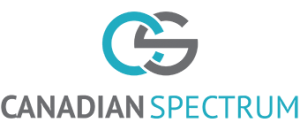The Problem
If you pay for your health care with after-tax dollars it is costing you far more than you think!
What you may not realize is that you not only pay for the service but also the unnecessary Income Tax! We have founded our company on assisting business owners to understand the health care system as it applies to them, and then we show you how to utilize the tax laws to your benefit.
You must use a unique company such as Canadian Spectrum to “broker” your plan or to be a “mediator”, so to speak, between you and Revenue Canada.
As a small business owner or entrepreneur you probably often only look at the price of wages when determining the cost of hiring employees. However, when you understand your basic legal rights you will realize that by paying smarter you can save substantial amounts of money, both for yourself and your staff.
Employees of small businesses often do not realize that there are alternatives to paying the high cost of most additional health care plans either.


The Solution
When employers pay out wages they incur payroll taxes, WCB, and other taxes.
When employees pay for health plans, they pay in after-tax dollars.
What if there was a way to cut down on the unwanted taxes by paying with your before-tax income?
There is … and Canadian Spectrum has found the way!
Hundreds of small businesses are saving themselves and their staff thousands of dollars.
FAQ
Will I save money?
Yes!
* If you are paying for any health or dental expenses with after-tax dollars.
* If your existing insurance plan has gaps where is doesn’t cover 100% of a service.
* If your paying for chiropractic or alternative health care with after-tax dollars.
* If you pay for eyewear or contacts.
How do I qualify?
You qualify if you are:
* a limited or incorporated company
* a professional corporation
* a proprietorship (Special rules apply)
* any self-employed individual
I have a sole proprietorship, is my company is too small?
The size of your company is not important. These plans are available to all companies and self-employed people. You can start using this deduction today to enjoy tax-free medical expenses rather than paying with after-tax dollars.
What expenses are covered?
* Professional services
* Dental services
* Laboratory examinations and tests
* Hospital services
* Medicines
* Materials and apparatus not requiring a prescription
* Prescribed medical treatments
* Materials and apparatus prescribed by a recognized Medical Practitioner
* Other expenditures
How does it work?
It’s as easy as 1 2 3!
1. We set up your Health Spending Account (HSA).
2. You decide the monetary limit for your HSA.
3. You decide what percentage of what procedures you want covered. Some companies might decide to cover 80% of all dental and 100% of all prescriptions and eyeglasses, whereas another might decide to cover 100% of all expenses.
When I do incur a health expense what is the procedure?
Claiming a medical or dental expense is a simple and easy procedure. You just fill out a claim form and send it to us. We then reimburse you based on the plan you chose.
What if you or your spouse already has medical or dental insurance?
Our plans work well in conjunction with conventional medical\dental insurance because of the gaps they leave. With conventional medical\dental insurance, numerous procedures and supplies are not covered.
Canadian Spectrum covers 100% of all of Revenue Canada’s allowable expenses. We save you money on what you pay with after-tax dollars. If the insurance plan only covers 50% of a procedure, we cover the other 50%. That way you get to deduct all of the expense!
What if you don’t use all the money in your HSA?
If you haven’t spent up to your HSA’s limit, the extra can be rolled over for one year. This can be advantageous. For example, if you know there’s an upcoming expense that’s going to cost more money than your yearly limit allows, you can roll money over so that the procedure will be covered 100% when it occurs.
Is MedicalDental Insurance too Expensive?
Not anymore!
Finally. . .There’s a Better Way. . . Canadian Spectrum’s Prepaid, tax-deductible Health Care Plans
